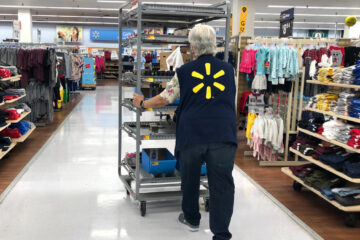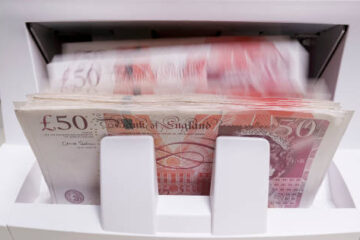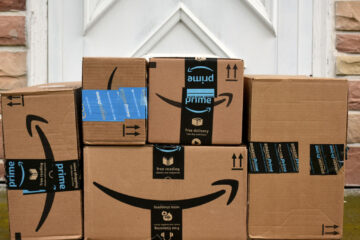Even since President Donald Trump officially announced his tariffs on April 2, Americans have been on a whiplash ride, wondering when the next drop will come.
Many large businesses that rely on imports to keep their supply chain flowing have had to find a way to either absorb costs or seek out new options, especially those who work with China.
💵💰Don’t miss the move: Subscribe to TheStreet’s free daily newsletter💰💵
While the tariff on goods imported from China to the U.S. was lowered from 145% to 30% as a result of a trade truce agreed upon in May, recent reports say China has announced that the US has “severely violated” the truce – so in other words, this ride may be about to get bumpy again.
Related: Popular magazine calls it quits after 23 years
While businesses both large and small wrestle with how to navigate the tariffs issue, American consumers are worried that the new levies will drive up everything from their grocery bill to the price of buying a car.
In the meanwhile, big box retailers like Walmart, Target, and Best Buy have all announced that prices will go up in their stores. This has driven some people to panic-buy household essentials in bulk, unsure of how high prices could soar in the future.
However, most people haven’t seen severe price hikes in their everyday – yet. Cost Plus Drugs CEO and “Shark Tank” star Mark Cuban thinks he knows the reason why.
Cuban has been a critic of Trump.
Mark Cuban explains why we aren’t seeing major inflation yet
Cuban shared a post on X on June 1 digging into the tariffs issue and explaining his take on why prices aren’t soaring just yet.
“Let’s talk about why inflation isn’t up, as economists predicted. It’s really simple. I see it in all my product based companies,” the billionaire said.
More Tariffs:
Tesla, Elon Musk make drastic decision amid U.S.-China trade warMajor U.S. automaker makes harsh decision in the wake of tariff tusselTariffs will devastate this entire industry
“1. They borrow money or use their available cash to front run the tariffs and buy as much inventory as they can. 3, 6 months or longer. In many cases they get a better price because the mfg knows the risks post tariffs.”
The strategy he mentions here is one Amazon CEO Andy Jassy has already said Amazon is doing. But, there’s more to it than simply buying ahead, according to the Cuban – there’s a price to pay for it.
Related: Shark Tank’s Kevin O’Leary calls this financial perk ‘worthless’
“2. But that cash is expensive. They either lose the ability to earn interest , (4pct) the ability to invest in other parts of their biz or they pay interest on a loan (10 to 20 pct ),” he explains further.
“3. None of the above is a positive. Not having cash or add to their liabilities is a risk. 4. They see the on and off again tariffs in action, so they don’t know how long their inventory will have the value they expected.”
You can see where Cuban is going here – but he still has more insight to share as he makes his point.
“5. So they don’t raise prices. In fact they may even discount some as a way to clear out inventory and replenish cash or pay down expensive loans,” he continues.
Cuban explains that it isn’t just small companies facing this problem, but all companies — which is why Walmart says they will be raising pricing in the future.
“The variance in tariffs has made it impossible to know how to manage costs, so you do all you can to clear out inventory and get back to cash,” he concludes. “And take your chances on tariffs not being as big as you feared. 7. This is why prices haven’t gone up to this point.”
Why companies won’t ‘eat the tariffs’
Cuban was also active in the comments with readers’ replies to the thread, such as one from X user @EastTexRangrFan about Trump’s famous “eat the tariffs” line.
“Why can’t these major companies eat the tariffs? Why can’t they take a little less profit? For example, Apple profited 180 billion in 2024, can they not eat some of that profit?” he asked.
“They have a responsibility to their shareholders to maximize their earnings,” Cuban explained. “They could ask their shareholders if they were ok with making less money. But that amount less is being paid to the government in tariffs. That’s the same as a new tax.”
Related: Shark Tank’s Mark Cuban sounds the alarm on devastating fact about tariffs


